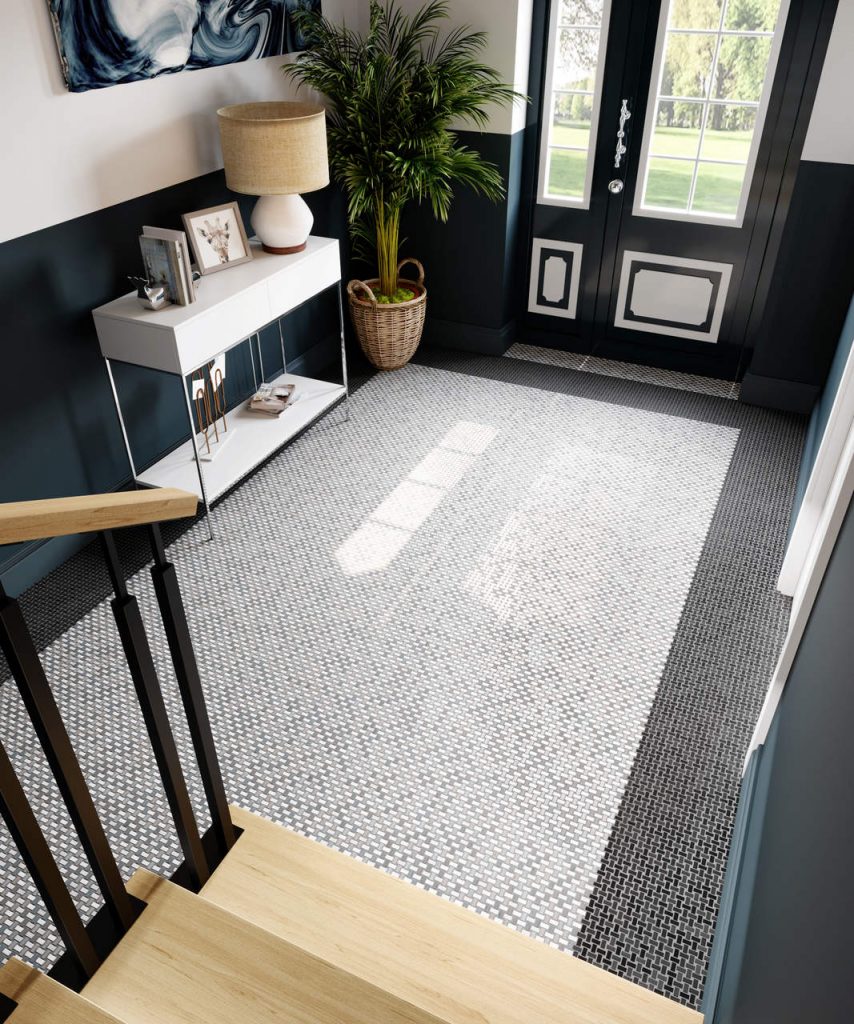Although very much overlooked during the engagement of residential interiors, it has an extremely important function, is like a prelude heralding the other parts of the apartment or house. We are, of course, talking about the hallway
So what floor to choose for it, so that it would not only decorate this space, but also be resistant to increased exploitation and other factors that can damage it?
Before we discuss the best flooring materials for the hallway in terms of their durability and appearance, at the very beginning it is worth considering what effect we want to achieve with this surface. There are two different concepts
The first one is to match the floor in the hallway with the one used in the room you enter from. In this way, we obtain a coherent visual effect of extending the space, which is particularly suitable for small living interiors

The second concept is based on contrast. That is, using quite different material for finishing the floor in the hallway in comparison with the one in the adjoining room. In this way, the hallway becomes a clearly separated space
The choice of material to be used for flooring in the hallway depends primarily on the arrangement used in this room. Additionally, it should also be resistant to abrasion and the impact of destructive factors such as moisture, mud or sand. It is on the basis of these criteria that the materials described below were selected
Wood-like tiles, such as porcelain stoneware, which are laid without grout, look just like natural wood, but are much more durable. In addition, they fit perfectly into almost any interior design, regardless of its style. This makes them a great idea for a hallway floor.
Another material are vinyl panels, which are characterized primarily by water resistance. They are more durable counterparts to classic panels, which also provide excellent sound insulation . They are available in many colors and patterns to choose from, and their laying is done in the classic manner as with their traditional counterparts.
>> See also: Laying laminate floors step by step?
An interesting solution – in terms of both effect and durability – is also using resin flooring in anterooms, which is recommended for rooms exposed to extremely frequent use. It is perfect for loft and industrial interiors, introducing an austere style
All these types of floors have one thing in common: they are characterized by high resistance to abrasion, as well as the formation of damage, which in places such as hallways is particularly desirable. This does not mean, however, that classic laminate flooring cannot be used, but it is important to remember that it should have a high abrasion resistance class, which will prevent it from becoming dull and damaged during use and will not force a renovation within a short period of time after its installation
In addition, when choosing flooring for a hallway, for practical reasons it is best to bet on dark shades, on which mud and other dirt are much less visible.